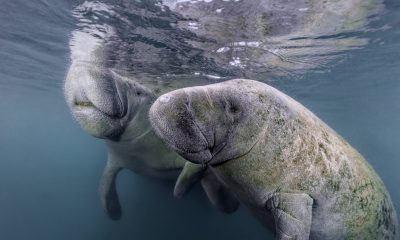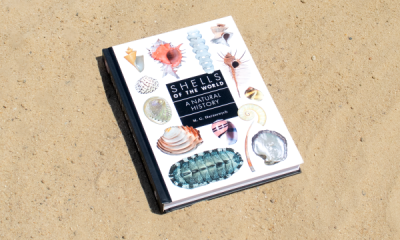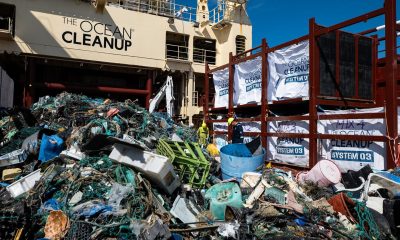Marine Life & Conservation
Parliamentarians call for ocean-based solutions to climate crisis on World Ocean Day
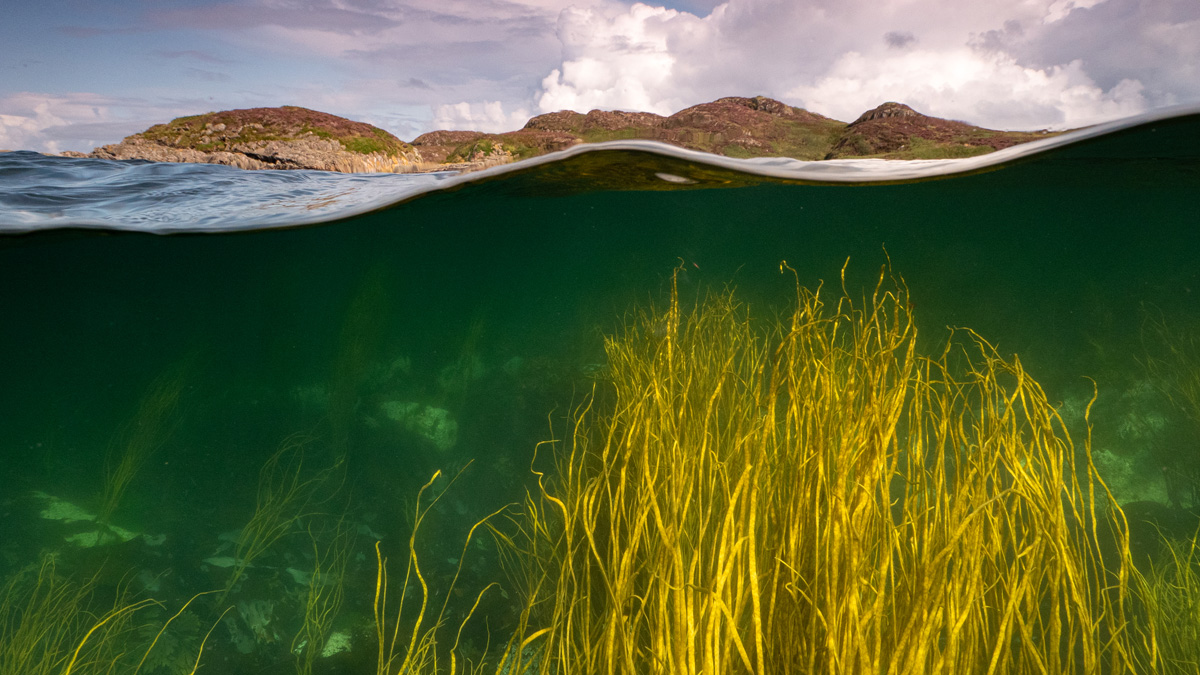
 A cross-party group of parliamentarians have pledged to be ‘Blue Carbon Champions’, supporting the Marine Conservation Society’s call for a four nation Blue Carbon Strategy, recognising the value of marine and coastal ecosystems in tackling the climate crisis.
A cross-party group of parliamentarians have pledged to be ‘Blue Carbon Champions’, supporting the Marine Conservation Society’s call for a four nation Blue Carbon Strategy, recognising the value of marine and coastal ecosystems in tackling the climate crisis.
Blue Carbon Champions include the Conservatives’ Sally-Ann Hart, Labour’s Kerry McCarthy, Lib Dem’s Lord Teverson and the Green Party’s Caroline Lucas. The Champions have come together in support of the Marine Conservation Society’s goal to scale up financial and policy support for blue carbon habitats.
In order for the UK to meet its current national and international commitments on biodiversity and climate change by 2030, ocean-based solutions to the climate crisis must be formally recognised and embedded into UK climate change policy. Ambitious action must be taken to rewild and protect blue carbon habitats.
The charity’s recent report in partnership with Rewilding Britain, Blue Carbon – Ocean-based solutions to fight the climate crisis, outlines the importance of ocean-based solutions in helping the UK to reach its goal of net zero by 2050, and 2045 for Scotland. By protecting and rewilding marine ecosystems, blue carbon stores will have increased capacity and ability to store carbon.
The report called on the UK Government and devolved administrations to develop a comprehensive four nation Blue Carbon Strategy focusing on three key action areas:
– Scaling up marine rewilding for biodiversity and blue carbon benefits
– Integrating blue carbon protection and recovery into climate mitigation and environmental management policies
– Working with the private sector to develop and support sustainable and innovative low-carbon commercial fisheries and aquaculture.
The significant role of the world’s forests in helping to reduce carbon emissions has been formally recognised through numerous initiatives and reforesting projects intended to keep carbon locked into the world’s forests on land. The Marine Conservation Society wants to see the same support for ocean-based solutions.
The charity’s report is supported by the results of a recent poll, carried out by nfpSynergy, which found that 59% of those surveyed recognised the important role that a healthy ocean plays in regulating our climate and reducing climate change. The ocean’s vital role in fighting the climate crisis is recognised through the report, and by the public, and the group of cross-party Blue Carbon Champions shows that policymakers are now listening and taking action.
International Environment Minister, Zac Goldsmith: “The world is finally waking up to the vital role that nature, including ocean habitats, can play in the fight against climate change. So I warmly welcome the focus of fellow parliamentarians on this all-important issue.
“Through the UK-led Global Ocean Alliance, we are building international support for a significant expansion of marine protected areas. As the hosts of the G7 and climate conference COP26 this year, we are pressing for increased investment in nature-based solutions to tackle climate change, including coastal ecosystems that will also help make communities more resilient in the face of climate change.”
This World Ocean Day, the Marine Conservation Society’s Blue Carbon Champions are highlighting the critical role the ocean plays in fighting the climate crisis, and calling for urgent action from the UK Government ahead of COP26.
Sally-Ann Hart (Conservative MP for Hastings and Rye): “On World Ocean Day, I’m calling for the protection of our seas to be a top priority in our battle against climate change. Ahead of COP26, we have a window of opportunity to turbo-charge efforts to rewild our waters and effectively manage our protected areas, to safeguard coastal livelihoods, restore blue carbon habitats and reduce emissions on our path to net zero.”
Kerry McCarthy (Labour MP for Bristol East): “If we are to achieve net zero emissions, we can’t just focus on technological solutions and changing behaviour; we also need to promote natural carbon solutions, and that means recognising the immense value of our seas and blue carbon habitats like coral reefs, seagrass and kelp.
“This Government has been talking for a long time about ocean preservation, but we are far from achieving the effective network of Marine Protected Areas around the UK that we need. Now is the time for the Government to invest in nature-based climate solutions and implement an ambitious Blue Carbon Strategy.”
Caroline Lucas (Green MP for Brighton Pavillion): “Any strategy for addressing the climate and nature crises must account for our marine environment. The UK’s saltmarshes and seagrass beds are absolutely vital, not just for biodiversity but for storing carbon too. However, there is currently no plan to protect and restore them.
“The Prime Minister says we can’t afford dither and delay, yet the health of our ocean continues to decline. The Government urgently needs to develop an ambition Blue Carbon Strategy to put our ocean on a path to recovery.”
To read the Marine Conservation Society and Rewilding Britain’s report, please visit the charity’s website. You can also find more information about the cross-party Blue Carbon Champions.
Blogs
Heading out on the water this Summer? Watch for manatees
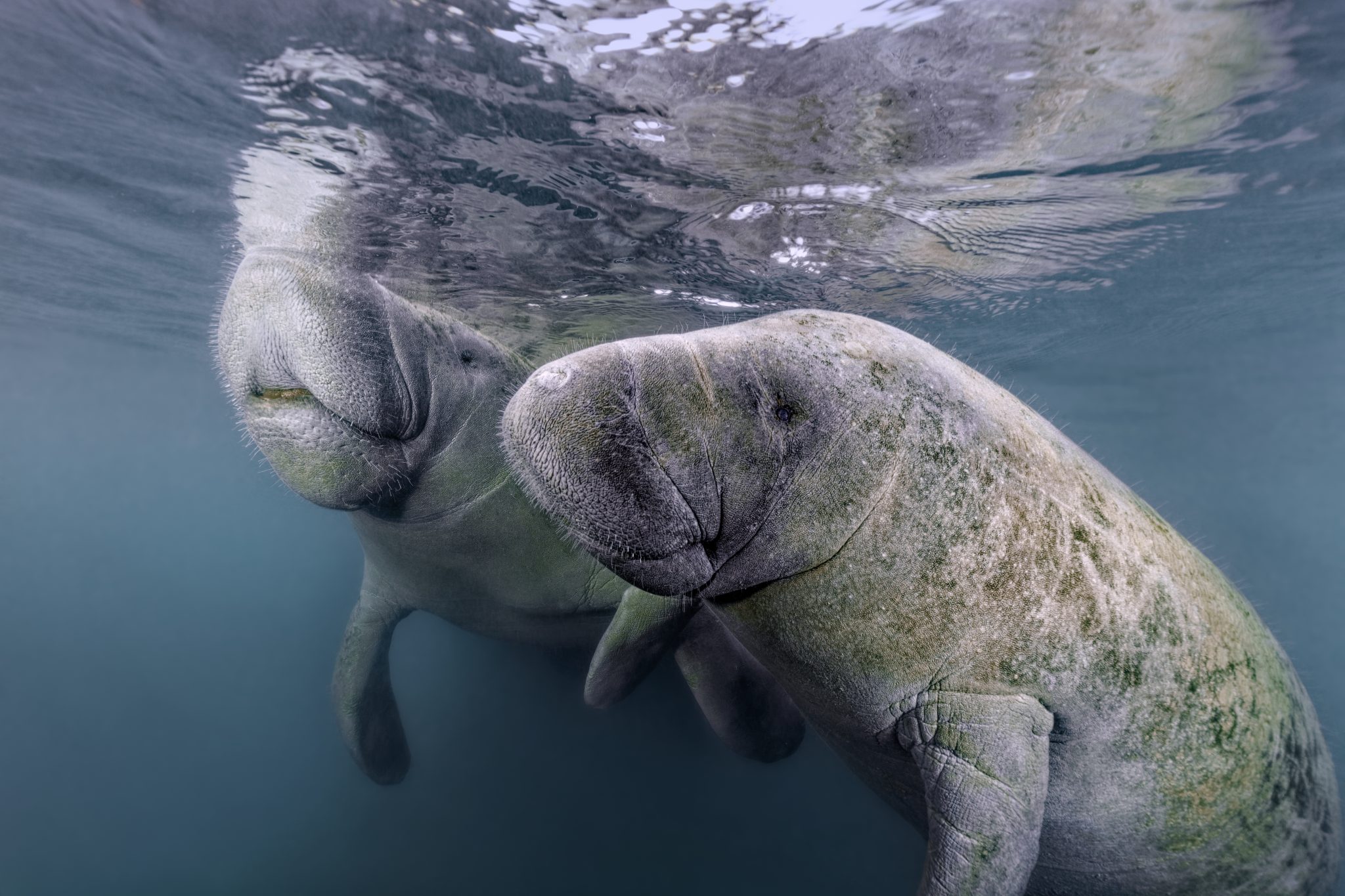
As National Safe Boating Week approaches, Save the Manatee® Club is urging boaters, and anyone that enjoys Florida’s waterways, to respect and protect the defenseless manatees that inhabit our shared waterways. From May 18 to 24, leading up to Memorial Day Weekend, the campaign aims to raise awareness about recreational boating safety and the importance of safeguarding imperiled manatees during the summer boating season. This week also emphasizes the importance of encouraging boaters to enroll in a boating safety course.
Manatees are semi-migratory marine mammals that are commonly found in shallow estuaries, bays, rivers, canals, and coastal areas throughout Florida and neighboring states. With some manatees venturing as far west as Texas and as far north as Massachusetts, collisions between these gentle giants and watercraft have become distressingly frequent. Boat propellers and high-speed collisions pose significant threats to manatees, often resulting in severe injuries or even death.
Save the Manatee Club is calling on all water enthusiasts to follow essential manatee safety tips to ensure the well-being of the imperiled manatee:
- Obey Speed Zone Signs: Familiarize yourself with and adhere to posted speed limits to prevent collisions with manatees.
- Reduce Glare with Polarized Sunglasses: Wear polarized sunglasses to enhance visibility and spot manatees below the water’s surface.
- Recognize Manatee Signs: Learn to identify signs of manatees in the area, such as swirls or flat spots on the water caused by their movements.
- Respect Manatee Sanctuaries: Keep a safe distance from posted manatee sanctuaries and avoid pursuing or harassing these marine mammals, as it is illegal and can disrupt their natural behaviors.
- Report Distressed Manatees: In Florida, promptly report distressed, injured, tagged, or orphaned manatees to the Florida Fish and Wildlife Conservation Commission (FWC) at 1-888-404-FWCC (3922). Outside of Florida, report sightings to the appropriate state agency or rescue organization. A list of agencies to contact is available at savethemanatee.org/report.
- Protect Seagrass Beds: Avoid boating over seagrass beds and shallow areas where manatees may be feeding. Stick to deep water channels while remaining vigilant, as manatees also utilize these channels during their travels.
- Dispose of Fishing Line Responsibly: Anglers should properly dispose of or recycle used fishing line to prevent entanglement hazards for manatees.
“Each year, National Safe Boating Week provides an excellent reminder for all of us to be aware that we share our waterways with vulnerable manatees,” emphasized Patrick Rose, Aquatic Biologist and Executive Director of Save the Manatee Club. “With the recent Unusual Mortality Event on Florida’s East Coast claiming an alarming number of manatees’ lives, it is more crucial than ever to prevent preventable deaths caused by watercraft collisions. By following manatee-safe boating guidelines, such as obeying speed zones and remaining vigilant for manatees, everyone on the water can contribute to the protection of these gentle giants.”
Save the Manatee Club offers a range of free materials to help safeguard manatees and raise awareness about manatee-safe boating practices. Shoreline property owners and park or marina managers can order aluminum dock signs to alert others about the presence of manatees in their areas. Boaters and paddlers can request packets containing a safety tips card, a waterproof boat banner, and a decal to display on their vessels, providing the number to report manatees in distress. To view and request these materials, visit savethemanatee.org/resources. Save the Manatee Club will also be hosting a live webinar for National Safe Boating Week on Tuesday, May 21st at 6pm EST. To register, visit savethemanatee.org/register.
Blogs
The Ocean Cleanup Breaks 10,000,000 KG Barrier

The Ocean Cleanup, the global non-profit project, has removed a verified all-time total of ten million kilograms (22 million lbs.) of trash from oceans and rivers around the world – approximately the same weight as the Eiffel Tower.
To complete its mission of ridding the oceans of plastic, The Ocean Cleanup uses a dual strategy: cleaning up the Great Pacific Garbage Patch (GPGP) to remove the plastic already afloat in the oceans, while stopping the flow of plastic from the world’s most polluting rivers.
Through cleaning operations in the GPGP and in rivers in eight countries, the cumulative total of trash removed has now surpassed ten million kilograms. This milestone demonstrates the acceleration of The Ocean Cleanup’s impact, while underlining the astonishing scale of the plastic pollution problem and the need for continued support and action.
While encouraging for the mission, this milestone is only a staging point: millions more tons of plastic still pollute our oceans and The Ocean Cleanup intends to continue learning, improving and innovating to solve this global catastrophe.
This announcement comes as governments from around the world meet to continue negotiations to develop a new legally binding instrument to end plastic pollution at INC4 in Ottawa, Canada. Representatives of The Ocean Cleanup will be in attendance and the organization will be urging decision-makers to collaborate towards a comprehensive and ambitious global treaty which addresses plastic at all stages of its life cycle and in all marine environments worldwide, including in areas beyond national jurisdiction.
It is encouraging to see that the need for remediation is reflected in the various options for potential treaty provisions. It is essential that the final treaty contains clear targets for the remediation of legacy plastic pollution, and reduction of riverine plastic emissions.
Tackling plastic pollution requires innovative and impactful solutions. The treaty should therefore incentivize the innovation ecosystem by fostering innovations that make maximal use of data, technology and scientific knowledge – such as those designed and deployed by The Ocean Cleanup.
‘After many tough years of trial and error, it’s amazing to see our work is starting to pay off – and I am proud of the team who has brought us to this point.’ said Boyan Slat, Founder and CEO of The Ocean Cleanup. ‘While we still have a long way to go, our recent successes fill us with renewed confidence that the oceans can be cleaned.’
The Ocean Cleanup was founded in 2013 and captured its first plastic in 2019, with the first confirmed catch in the GPGP coming soon after the deployment of Interceptor 001 in Jakarta, Indonesia. After surpassing one million kilograms of trash removed in early 2022, the non-profit project has since progressed to the third iteration of its GPGP cleaning solution, known as System 03, and a network of Interceptors currently covering rivers in eight countries, with more deployments set for 2024.
About The Ocean Cleanup
The Ocean Cleanup is an international non-profit organization that develops and scales technologies to rid the world’s oceans of plastic. They aim to achieve this goal through a dual strategy: stemming the inflow via rivers and cleaning up the legacy plastic that has already accumulated in the ocean. For the latter, The Ocean Cleanup develops large-scale systems to efficiently concentrate the plastic for periodic removal. This plastic is tracked and traced through DNV’s chain of custody model to certify claims of origin when recycling it into new products. To curb the tide via rivers, The Ocean Cleanup has developed Interceptor™ solutions to halt and extract riverine plastic before it reaches the ocean. Founded in 2013 by Boyan Slat, The Ocean Cleanup now employs a broadly multi-disciplined team of approximately 140. The foundation is headquartered in Rotterdam, the Netherlands.
For more information, visit: theoceancleanup.com and follow @theoceancleanup on social media.
-

 Marine Life & Conservation Blogs3 months ago
Marine Life & Conservation Blogs3 months agoCreature Feature: Swell Sharks
-

 Gear Reviews4 weeks ago
Gear Reviews4 weeks agoGEAR REVIEW – Revolutionising Diving Comfort: The Sharkskin T2 Chillproof Suit
-

 Blogs2 months ago
Blogs2 months agoMurex Resorts: Passport to Paradise!
-

 Blogs3 months ago
Blogs3 months agoDiver Discovering Whale Skeletons Beneath Ice Judged World’s Best Underwater Photograph
-

 News3 months ago
News3 months agoPADI Teams Up with Wellness Brand Neuro to Drive Ocean Change and Create a Blue State of Mind
-

 Gear Reviews3 months ago
Gear Reviews3 months agoGear Review: Oceanic+ Dive Housing for iPhone
-

 Marine Life & Conservation2 months ago
Marine Life & Conservation2 months agoSave the Manatee Club launches brand new webcams at Silver Springs State Park, Florida
-
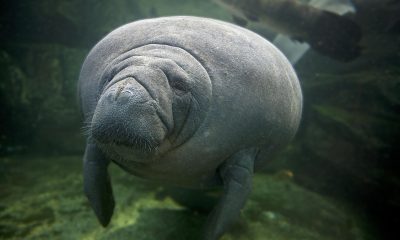
 Blogs2 months ago
Blogs2 months agoSeagrass Awareness Month brings critical food source for Manatees to centre stage



